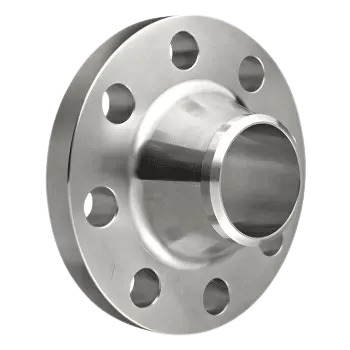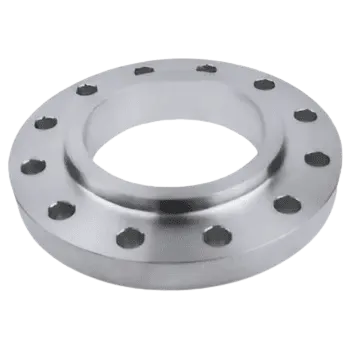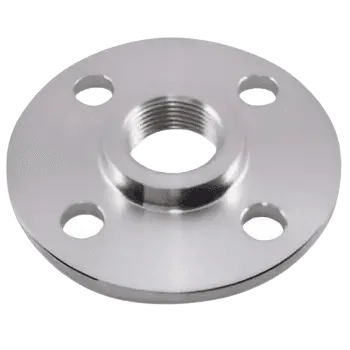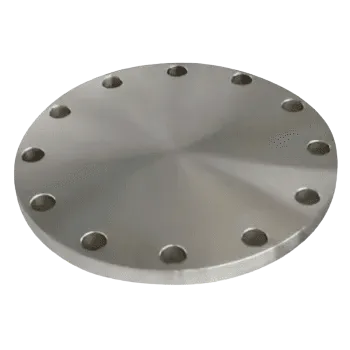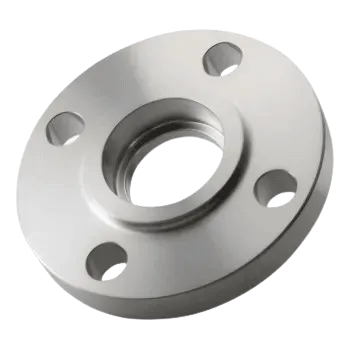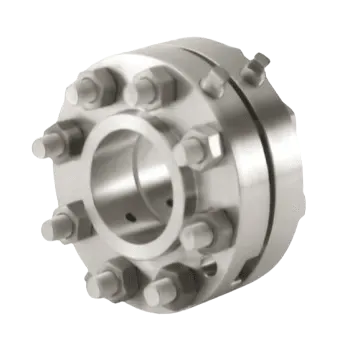Alloy Steel Flanges Manufacturer and Supplier In India
Naysha Steel is a leading manufacturer and supplier of alloy steel flanges in Mumbai, India. With years of expertise and a commitment to excellence, Naysha Steel has established itself as a trusted name in the industry. Their extensive range of alloy steel flanges includes various types such as slip-on flanges, blind flanges, weld neck flanges, and threaded flanges, among others. The company prides itself on delivering high-quality products that meet international standards and customer specifications. With a state-of-the-art manufacturing facility and a skilled workforce, Naysha Steel ensures precision engineering, superior performance, and reliable delivery. As a reliable partner, they cater to diverse industries, providing efficient solutions for their alloy steel flange requirements.
Types of Alloy Steel Flanges
Naysha Steel offers a diverse range of alloy steel flanges for various industrial applications. These flanges are crafted from high-quality alloy steel, ensuring exceptional strength, durability, and corrosion resistance. The company provides different types of alloy steel flanges, including slip-on flanges, blind flanges, weld neck flanges, socket weld flanges, and threaded flanges. Naysha Steel's alloy steel flanges are designed to withstand high pressure and temperature environments, making them suitable for critical operations in oil and gas, petrochemical, power generation, and other industries. With a commitment to superior quality, Naysha Steel delivers reliable and precision-engineered alloy steel flanges.
Weld neck flanges are available in various sizes and pressure ratings to suit different
applications. The size of the flange is determined by the size of the pipe or component
being connected, while the pressure rating is determined by the maximum.
One of the advantages of slip-on flanges is that they are easier to align than weld neck
flanges, which can save time and reduce the risk of welding errors. Slip-on flanges are also
available in a wide range of sizes and pressure ratings to suit different applications
These alloys provide.
One of the advantages of threaded flanges is their ease of installation. They can be quickly
screwed onto the pipe or fitting without the need for welding, which can save time and
reduce labor costs. Threaded flanges are also available in a range of sizes and pressure
ratings.
Blind flanges are made from high-quality alloys such as 304,
316, 321, and 347. These alloys provide excellent corrosion resistance and durability,
making them suitable for use in a variety of industries, including chemical processing, oil
and gas, and power generation.
To install a socket weld flange, the pipe or fitting is inserted into the socket and welded
in place. The connection is then secured using studs and nuts, which provide additional
strength and stability. Socket weld flanges are available in a range of sizes and pressure
ratings to suit different.
The orifice plate is mounted between two flanges, with the orifice plate being held in place
by the bolts of the flanges. The orifice plate is designed with a precisely machined hole or
orifice that restricts the flow of fluid, creating a differential pressure that is
proportional to the flow rate.
Features of Alloy Steel Flanges
One of the primary benefits of alloy s is their high level of corrosion resistance.
The addition of alloying elements such as nickel and molybdenum improves the steel's ability to
resist corrosion in harsh environments, making it ideal for use in chemical processing, oil and gas,
and marine applications. Alloy s are known for their high strength and toughness. The
addition of alloying elements such as titanium and copper can increase the steel's strength, making
it suitable for use in structural applications, such as in the construction of bridges and
buildings. Certain alloy s, such as those containing molybdenum, have excellent
high-temperature properties. They are able to maintain their strength and corrosion resistance at
elevated temperatures, making them ideal for use in high-temperature applications.
Size of
Alloy Steel Flanges
| Nominal Size |
Outside Diameter
(OD) |
Min. Thickness
(T) |
RF Dia.
(R) |
No. of Bolt Holes |
Diameter of Holes |
Bolt Circle
(BC) |
SO Bore ID
(SB) |
WN Bore ID
(WB) |
Dia. Hub Base
(HB) |
Dia. of Hub Top
(HT) |
SO LTH
(SL) |
WN LTH
(WL) |
| 1⁄2 |
3.50 |
0.38 |
1.38 |
4 |
0.62 |
2.38 |
0.88 |
0.62 |
1.19 |
0.84 |
0.56 |
1.81 |
| 3⁄4 |
3.88 |
0.44 |
1.69 |
4 |
0.62 |
2.75 |
1.09 |
0.82 |
1.50 |
1.05 |
0.56 |
2.00 |
| 1 |
4.25 |
0.50 |
2.00 |
4 |
0.62 |
3.12 |
1.36 |
1.05 |
1.94 |
1.32 |
0.62 |
2.12 |
| 11⁄4 |
4.62 |
0.56 |
2.50 |
4 |
0.62 |
3.50 |
1.70 |
1.38 |
2.31 |
1.66 |
0.75 |
2.19 |
| 11⁄2 |
5.00 |
0.62 |
2.88 |
4 |
0.62 |
3.88 |
1.95 |
1.61 |
2.56 |
1.90 |
0.81 |
2.38 |
| 2 |
6.00 |
0.69 |
3.62 |
4 |
0.75 |
4.75 |
2.44 |
2.07 |
3.06 |
2.38 |
0.94 |
2.44 |
| 21⁄2 |
7.00 |
0.81 |
4.12 |
4 |
0.75 |
5.50 |
2.94 |
2.47 |
3.56 |
2.88 |
1.06 |
2.69 |
| 3 |
7.50 |
0.88 |
5.00 |
4 |
0.75 |
6.00 |
3.57 |
3.07 |
4.25 |
3.50 |
1.12 |
2.69 |
| 31⁄2 |
8.50 |
0.88 |
5.50 |
8 |
0.75 |
7.00 |
4.07 |
3.55 |
4.81 |
4.00 |
1.19 |
2.75 |
| 4 |
9.00 |
0.88 |
6.19 |
8 |
0.75 |
7.50 |
4.57 |
4.03 |
5.31 |
4.50 |
1.25 |
2.94 |
| 5 |
10.00 |
0.88 |
7.31 |
8 |
0.88 |
8.50 |
5.66 |
5.05 |
6.44 |
5.56 |
1.38 |
3.44 |
| 6 |
11.00 |
0.94 |
8.50 |
8 |
0.88 |
9.50 |
6.72 |
6.07 |
7.56 |
6.63 |
1.50 |
3.44 |
| 8 |
13.50 |
1.06 |
10.62 |
8 |
0.88 |
11.75 |
8.72 |
7.98 |
9.69 |
8.63 |
1.69 |
3.94 |
| 10 |
16.00 |
1.12 |
12.75 |
12 |
1.00 |
14.25 |
10.88 |
10.02 |
12.00 |
10.75 |
1.88 |
3.94 |
| 12 |
19.00 |
1.19 |
15.00 |
12 |
1.00 |
17.00 |
12.88 |
12.00 |
14.38 |
12.75 |
2.12 |
4.44 |
| 14 |
21.00 |
1.31 |
16.25 |
12 |
1.12 |
18.75 |
14.14 |
13.25 |
15.75 |
14.00 |
2.19 |
4.94 |
| 16 |
23.50 |
1.38 |
18.50 |
16 |
1.12 |
21.25 |
16.16 |
15.25 |
18.00 |
16.00 |
2.44 |
4.94 |
| 18 |
25.00 |
1.50 |
21.00 |
16 |
1.25 |
22.75 |
18.18 |
17.25 |
19.88 |
18.00 |
2.62 |
5.44 |
| 20 |
27.50 |
1.62 |
23.00 |
20 |
1.25 |
25.00 |
20.20 |
19.25 |
22.00 |
20.00 |
2.81 |
5.62 |
| 22 |
29.50 |
1.75 |
25.25 |
20 |
1.38 |
27.25 |
22.22 |
21.25 |
24.25 |
22.00 |
3.07 |
5.82 |
| 24 |
32.00 |
1.81 |
27.25 |
20 |
1.38 |
29.50 |
24.25 |
23.25 |
26.12 |
24.00 |
3.19 |
5.94 |
Uses of Alloy Steel Flanges
- Alloy flanges are commonly used in the oil and gas industry for connecting
pipes and valves, and for transporting fluids under high pressure and temperature.
- In the chemical industry, alloy flanges are used for handling highly
corrosive chemicals and substances. The corrosion-resistant properties of
make it an ideal material for use in these applications.
- Alloy flanges are widely used in the food processing industry due to their
hygienic properties and resistance to corrosion. They are used for connecting pipelines,
pumps, and valves
- In the pharmaceutical industry, alloy flanges are used for handling
sensitive materials and maintaining sterile conditions. They are used for connecting
pipelines, reactors, and other equipment.
- Alloy flanges are used in the power generation industry for connecting
pipelines, turbines, and other equipment. They are used in both conventional and renewable
energy generation plants.
Quality of Alloy Steel Flange
The selection of the right material is critical for ensuring the quality of
alloy flanges. High-quality alloys with appropriate levels of elements such as
chromium, nickel, and molybdenum should be used to ensure optimal performance. The manufacturing
processes used to produce alloy flanges can impact their quality. The use of
advanced manufacturing technologies and techniques can help ensure that the flanges are produced
to precise specifications and with consistent quality. The implementation of robust quality
control measures during the manufacturing process is critical for ensuring that
alloy flanges meet the required standards and specifications.
Alloy Steel Flanges Manufacturer : Grades & Classes
- ASTM A182 F1/F1a/F1b: Low alloy steel flanges suitable for applications at elevated temperatures.
- ASTM A182 F5/F5a/F5b: Chromium-molybdenum alloy steel flanges with excellent strength and corrosion resistance.
- ASTM A182 F9/F9a/F9b: Alloy steel flanges with added chromium and molybdenum for improved toughness and high-temperature performance.
- ASTM A182 F11/F11a/F11b: Chromium-molybdenum alloy steel flanges suitable for high-temperature and pressure applications.
- ASTM A182 F321/F347: Stainless steel flanges with added titanium or niobium for improved resistance to intergranular corrosion.
- ASTM A182 F316/F316L: Austenitic stainless steel flanges with superior corrosion resistance, particularly in acidic environments.
Please find below our manufacturing and Sales network below: (Contact us for detailed information for your nearest branches)
- Alloy Steel Flanges manufacturer and contractor in Hyderabad
- Alloy Steel Flanges manufacturer and supplier in Chennai
- Alloy Steel Flanges manufacturer and stockists in Pune
- Alloy Steel Flanges manufacturer and dealer in Faridabad
- Alloy Steel Flanges manufacturer and warehousing in Chandigarh
- Alloy Steel Flanges manufacturer and wholesalor in Delhi
- Alloy Steel Flanges manufacturer and trader in Coimbatore
- Alloy Steel Flanges manufacturer and stockholder in Bangalore
Industries served by Alloy Steel Flanges
In the oil and gas industry, blind Alloy Steel flanges are used in pipelines, storage tanks, and offshore platforms. They are employed for closing off openings during maintenance, repair, or when a branch connection is not required. Petrochemical plants utilize blind Alloy Steel flanges in equipment such as reactors, distillation columns, and storage vessels. These flanges provide a secure and leak-proof seal when closing off unused openings or isolating sections of the process.

Oil and Gas Industries
The oil and gas industry includes a wide range of from drilling and
production to refining and marketing. Some of the major players in this
include oil and gas companies, service providers, equipment.

Petroleum Industries
In the drilling process, stainless steel is used to make drill bits, pipes, and other
equipment that must withstand high pressures and temperatures. Stainless steel is
also used to make pumps, valves, and fittings for the transportation.
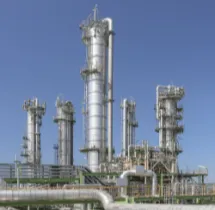
Shipbuilding in India
In storage applications, stainless steel is used to make tanks and containers that
can safely store corrosive and hazardous chemicals. It is also used in piping
systems for chemical transfer and distribution chemical industry.
Marking & Pricing
Products are packaged to ensure that there is no damage during of goods transport. In case of exports, standard export packaging is done with utmost care in wooden covering or boxing. All products are marked with Grade, Lot No, Size, Degree and our trade mark. On special requests we can also, make
customized marking on our products.
Quality Assurance
At Naysha Steel, all fittings and flanges are subject to strict inspection at each and every stage of the production process, from starting material
purchasing to product dispatch. They are visually examined for compliance to ASTM, ASME, MSS, DIN, EN, and JIS codes and standards.
Upon request, official certified Inspection Agencies can be called in to witness the material reports, dimensions and quality compliance
of products.
Test Certificates: Manufacturer Test Certificate as per EN 10204 / 3.1B Raw Materials Certificate, 100% Radiography Test Report, Third
Party Inspection Report

